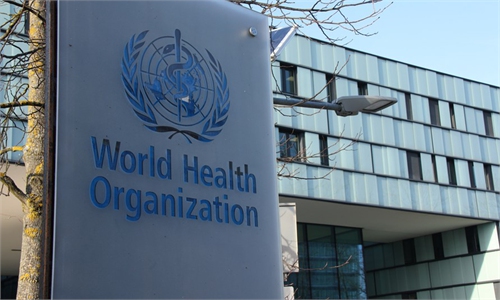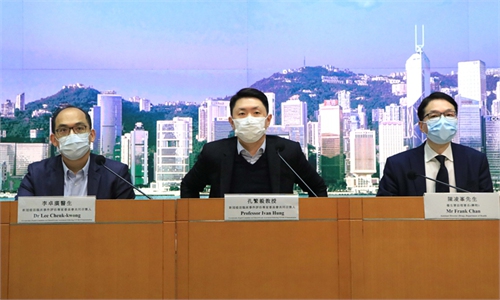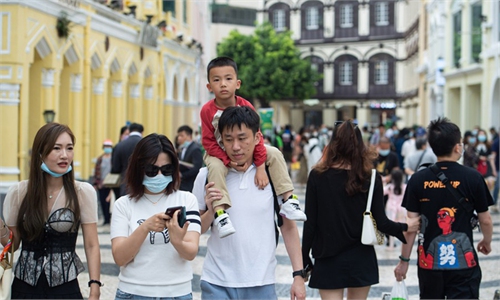
Passengers on the metro train in Taipei. (photo: Xinhua/Jin Liwang)
Authorities in Hong Kong and Macao have tightened entry policies for visitors from the island of Taiwan, over concerns surrounding the recent surge in COVID-19 cases reported there, local media reported on Friday.
The Hong Kong Special Administrative Region (HKSAR) government will require visitors from Taiwan to undergo a 14-day quarantine at designated hotels to "reduce the chance of the virus entering communities," the city's health head said on Friday, reported Hong Kong-based Television Broadcasts Limited (TVB).
This marks a shift from the existing policy that allows arrivals from Taiwan to undergo their self-quarantine period at home.
Earlier, the Hong Kong authority reportedly considered to shorten the duration of home isolation for visitors from Taiwan, the Chinese mainland and Macao SAR, from 14 days to seven days from Friday. This plan was later objected to by some local political parties as the pandemic situation in Taiwan became worse, the Taiwan-based Central News Agency (CNA) reported on Wednesday.
Starting from Friday, travelers to Macao from Taiwan will have to undergo an extra "self-health management" period for at least seven days, apart from the current 14-day medical observation at designated venues, the Macao Special Administrative Region (Macao SAR) health authority stated on the government website on Thursday evening.
Taiwan encountered a resurgence of COVID-19 in local communities this week, with numbers of its daily local cases jumping above 10 on Wednesday and Thursday, showed the website of the Taiwan Center for Disease Control (CDC). The island reported 16 local infections on Wednesday, "a record single-day high since the start of the pandemic," Taiwan media said.
Gene sequencing showed that many cases in Taiwan's latest outbreak are related to a variant identified in the UK, local COVID-19 officials said on Thursday. Medical experts criticized the Taiwan authority, who has been complacent about its "virus-fighting achievement," and has lowered its guard on the virus transmission risks.
In Taiwan, calls are rising for the authorities to conduct large-scale screenings of residents after the latest COVID-19 outbreak. The local authority remained unmoved by this appeal, however, as Taiwan's "Central Epidemic Command Center (CECC)" specialist advisory panel member Lee Ping-ing said universal testing is expensive and "useless," reported CNA on Tuesday.
Besides the indifferent attitude of the local authority, Taiwan's low inoculation rate and vaccine shortage may have also resulted in the recent community transmission of the virus, experts estimated.
COVID-19 is a highly contagious virus; those not vaccinated are highly susceptible to contracting it, said Wang Guangfa, a respiratory specialist at Peking University First Hospital.
The island had only 240,000 doses of AstraZeneca COVID-19 vaccine in storage as of May 6, local media quoted Taiwan's CECC as saying. The number was a drop in the bucket considering the region's over 20 million population, "far from being able to build an immune protection barrier locally," Wang told the Global Times on Friday.




